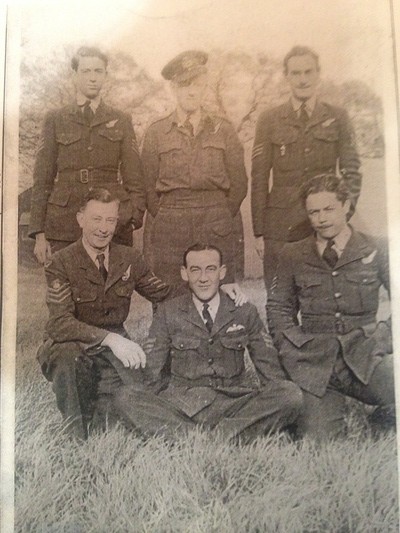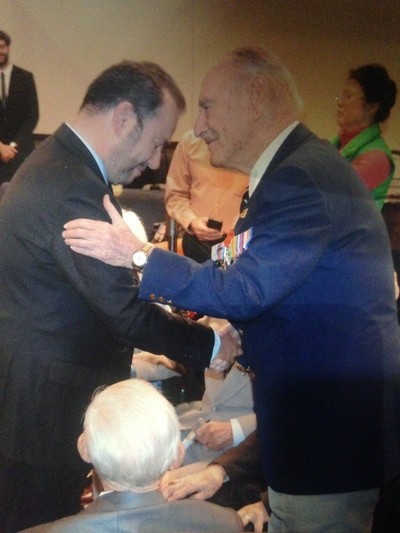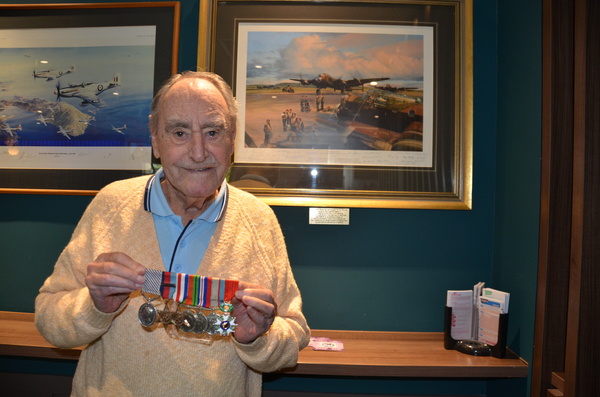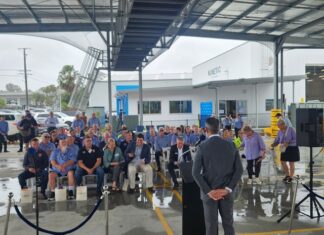By JOLENE OGLE
IT TOOK more than 71 years, but local war hero David Morland has finally been recognised by the French Ambassador for his brave service in World War II.
Mr Morland said it was a long time coming but he enjoyed making the French Ambassador to Australia Christophe Lecourtie laugh as he presented the Tewantin local with the top honour of the Croix de Guerre medal.
The Criox de Guerre medal is awarded to those who have performed heroic deeds in combat, and on 12 June at the Coorparoo RSL Club Mr Morland was awarded the medal along with 18 other Royal Australian Air Force (RAAF) personnel who served in WWII.
Mr Morland has previously featured in Noosa Today as one of the local war heroes commemorated in the Anzac edition on 23 April where journalist Katie de Verteuil recorded Mr Morland’s service with the RAAF.
After enlisting in February 1943 at the age of 18, Mr Morland set off for 10 months training in the bomber command.
After numerous postings, Mr Morland was based on Five Group (Special Duties) Bomber Command at Waddington, UK, where the squadron was awarded five distinguished service orders, 146 Distinguished Flying Crosses, two Conspicuous Gallantry Medals and 36 Distinguished Flying Medals during its operations from 2 January 1943 to 26 April 1945.
But Mr Morland said he was nervous during the first few operations, knowing the lifespan of a bomber wasn’t expected to be long with five of the seven commanding officers plus 590 aircrew killed in action.
Mr Morland returned from war and moved to Tewantin in 1989. Now a long-standing member of the Tewantin Noosa RSL, Mr Morland has loaned WWII art to the club including a painting by R. Taylor called Band of Brothers that captures the moment Mr Morland’s plane S for Sugar lands on the runway after its 97th operation.
S for Sugar completed 137 operations by the end of the war and is now in the RAF museum at Hendon, UK.
Each plane was named and painted with a local pop culture figure, while the numbers of operations were recorded on the side of the plane.
“It was important to keep a sense of humour during those days,” Mr Morland said.










